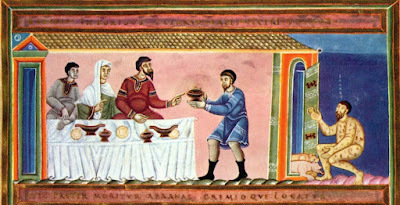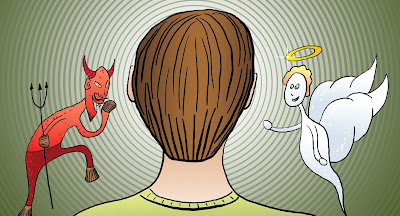Stephen Roney's Blog
September 30, 2025
In Defense of Monarchy

All nationsoperate on shared delusions. I see this perhaps more clearly than most becauseI have lived in several different cultures.
One dangerousdelusion Americans share is that there is something fundamentally wrong withmonarchies. I heard it just recently from a panelist in a US news show: “nomatter what the problems with our democracy, surely it is better than livingunder a dictatorship or a monarchy.”
Is it?
For thatmatter, are monarchies and democracies different systems? A democracy is notthe same thing as a republic.
Thisprejudice has caused America much grief. When they left Iraq, for example, theycould have saved many lives and much treasure by handing the keys over to a monarchand going home. Instead, they stayed and tried, absurdly, to impose a democraticrepublic. A contradiction in terms: to impose democracy.
A monarchyis a valuable asset to a stable democracy. Most of the world’s strongestdemocracies are monarchies: the United Kingdom, Denmark, Norway, Sweden, theNetherlands, Spain, Malaysia, Canada, Australia, New Zealand, Belgium. There arereasons for this. Democracies require unity and trust: you have to know yourpolitical opponents will deal fairly with you out of power. A monarch is auseful point of unity; a shared loyalty and a referee for the transition ofpower. The monarch has more often than not been a backstop preserving democracyunder threat. The flag never falls into the street to be seized by thestrongest arm. Compare the great republics of France and the United States; comparerepublican Spain or Weimar to royalist Spain or Germany. The republics do seemmore prone to dissolve into revolution or civil war, or be taken over by somedictator.
A monarchgives the nation a human face; a royal family makes the state feel more likeone big family. Everybody is brother and sister. This is humanizing. Thispreserves civil peace. People naturally care about people, not pieces of paper.And more about people than ideology.
Without aroyal family as the focus for a nation, the obvious alternative is ethnicity. Thisis bad news for any ethnic minorities. At best, they must feel left out, neverat home. At worst, you have Nazi Germany.
If not ethnicity,you have a nation unified by ideology or religion. The United States managedthis. So did the Soviet Union, or Maoist China. So did the several Muslim caliphates.But there are only so many ideologies or religions powerful enough to preserveconsensus among a large group of people. And you necessarily risk limitingfreedom of thought. The situation becomes difficult for minority religions.
Accordingly,monarchy is best at allowing diversity, and at preserving peace and equality inany diverse state.
It alsointroduces an element of glamour and magic to everyone’s lives. Monarchies areromantic. Lacking one, America has obviously compensated with their “stars” and“idols.” But this system seems terribly damaging to those caught up in it. Unlikemonarchies, these celebrities are not groomed for the role, and their famealmost inevitably fades. The psychic strain must be incalculable. Many crashand burn.
A monarchyalso seems to inoculate a nation against nepotism in politics. There is someinstinctive craving, that in republics throws up political “dynasties,” likethe Kennedys, Bushes, or Clintons in the US, the Gandhis in India, the LePensin France, the Marcoses and the Aquinos in the Philippines. Compare Britain. With a monarchy, this seems much less common. Theneed is met, and does not interfere with meritocracy in government.
Fordemocracy to function requires a high-trust society, with establishedtraditions of gentlemanly debate. If a society has not developed the necessary traditions,monarchy is again the best alternative, and the one most likely to peacefullyand naturally segue into democracy when conditions allow. Either a dictator ora democratically elected leader is there because of a burning interest in acquiringpower over others. This is just the sort of personality we do not want incharge. A monarchy will throw into power random personalities. The averageperson is not very interested, if at all, in power over others. A dictator, oreven an elected leader facing defeat, has every incentive to loot the treasury beforehe leaves, is ousted, or dies. But a monarchy passes on to the son; it isnatural instinct to preserve the inheritance for the next generation.
All systemsare imperfect, as families are imperfect, but monarchy has natural safeguards.
Compare thevarious monarchies in the Middle East, where there is no democracy, to the republics;notice who is doing well, not persecuting minorities, and who weathered the “ArabSpring” without chaos or civil war. Compare Saudi Arabia, Qatar, the UAE, Oman,Kuwait, Jordan, Morocco; with Libya, Syria, Iraq, Lebanon, Yemen, Gaza. See thedifference?
Surely the monarchicsystem proves its worth. It is time-tested, and our ancestors were not fools.
'Od's Blog: Catholic comments on the passing parade.September 29, 2025
Dives and Lazarus and the Resurrection

Jesus said to the Pharisees:
“There was a rich man who dressed in purple garments and fine linen and dined sumptuously each day. And lying at his door was a poor man named Lazarus, covered with sores, who would gladly have eaten his fill of the scraps that fell from the rich man’s table. Dogs even used to come and lick his sores.
When the poor man died, he was carried away by angels to the bosom of Abraham. The rich man also died and was buried, and from the netherworld, where he was in torment, he raised his eyes and saw Abraham far off and Lazarus at his side. And he cried out, ‘Father Abraham, have pity on me. Send Lazarus to dip the tip of his finger in water and cool my tongue, for I am suffering torment in these flames.’
Abraham replied, ‘My child, remember that you received what was good during your lifetime while Lazarus likewise received what was bad; but now he is comforted here, whereas you are tormented. Moreover, between us and you a great chasm is established to prevent anyone from crossing who might wish to go from our side to yours or from your side to ours.’
He said, ‘Then I beg you, father, send him to my father’s house, for I have five brothers, so that he may warn them, lest they too come to this place of torment.’
But Abraham replied, ‘They have Moses and the prophets. Let them listen to them.’
He said, ‘Oh no, father Abraham, but if someone from the dead goes to them, they will repent.’
Then Abraham said, ‘If they will not listen to Moses and the prophets, neither will they be persuaded if someone should rise from the dead.'”
Luke 16:19-31.
This passage, the gospel reading at last Sunday’s mass, is rich with significance. Because Lazarus is named, it does not appear to be a parable. From it we understand that either hell or heaven are eternal fates: one cannot move between them.
It strongly suggests that suffering in this life will be rewarded in heaven. Nothing here indicates that Lazarus led a particularly moral life, full of good deeds. No, he is given heaven as a reward expressly in recompense for his suffering. “Now he is comforted here.”
This speaks against the self-satisfied “happy happy joy joy” form of Christianity that I so dislike. To be contented in a world of want is an indictment.
It also seems to me to endorse Judaism. Jesus was not sent for the Jews. There is no need for Jews to convert. So long as they listen to Moses and the prophets, they are good. If they do not listen to Moses and the prophets, Jesus’s coming will make no difference to them.
This also affirms my own dislike of the argument that the resurrection is proof of the Christian faith. The passage itself says it is not sufficient proof, and not necessary proof. One believes in Christianity because one listens to the words of Jesus, or listens to the words of Moses and the prophets, and knows one is hearing the voice of God. One knows in one’s heart. And of course one knows, because God created us to hear and respond to his word. “Let those who have ears to hear, hear.”
This also seems to be the point of the tale of doubting Thomas: “blessed are those who have not seen, and yet believe.”
'Od's Blog: Catholic comments on the passing parade.
September 27, 2025
Whose Free Speech?
 So famous he still needs a name tag?
So famous he still needs a name tag?Many on the left have said that ABC suspending Jimmy Kimmel was or would be a violation of his freedom of speech.
I think we need to make some distinctions. If you say ABC cannot cancel Kimmel no matter what he says, you are ignoring ABC’s free speech rights. That would be compelled speech. ABC is a publisher; it has a right to publish whom they choose, because Kimmel represents them to the public. Imagine if a corporation hired an advertising firm, and then was legally required to run their ads no matter what they sent in.
The issue is different for online platforms like YouTube or Facebook or X. They are considered to merely be providing a service, like the phone company or an ISP. This gives them special legal protections. They are the “public square.” Nobody simply speaking on YouTube represents YouTube. So if they silence anyone, they are indeed violating their freedom of speech.
And the issue is different for “blacklisting”—that is, cancelling or silencing someone not for what they are saying, but for something they said at some other time or on some other platform. That does seem a violation of freedom of speech. It has a chilling effect on public discourse.
If government steps in and requires ABC to cancel Kimmel, openly or behind the scenes, on pain of retribution, this is a violation of freedom of speech—of ABC’s freedom of speech as well as Kimmel’s.
But even the government has the right to block slanderous speech, libel, incitement to violence, or pornography. Slander, libel, or incitement to violence are not just speech, but also deed; they are performative, and can materially harm others. Pornography is not necessarily performative, but may be socially undesirable. Similarly, the government has the right to arrest someone for walking about naked or masturbating in front of children. And no inalienable rights are violated in censoring it. Freedom of speech protects opinions, information and artistic expression, for the sake of public discourse and conscience, and not personal fetishes.
I hope this clarifies matters.
Should Kimmel be fired? I urge ABC to do so.
On Being Spiritually Bullied

Friend Xerxes, the formerly left-wing columnist, who has now mostly eschewed politics, wrote recently objecting to the evangelical Protestant “born-again” concept of sudden conversion. He considers this “bullying,” and says it is not in the Bible.
Pressed on how this is bullying, he emphasizes the demand to repent past sins. That is the bullying; and that is what is not in the Bible.
As a Catholic, I really have no dog in this fight. Instant conversions are not the expected norm in Catholicism. Catholicism is dubious about recognizing sudden conversions, because they may not be sincere. The usual advice is to sit on it for six months to a year, and spend that time walking the walk and studying the faith, before going public.
But surely there is much Biblical warrant and saintly testimony for sudden conversion. Even outside Christianity: consider the case of the Buddha. Or the legend of Newton under the apple tree. Or Archimedes’s famous “Eureka!” Everyone has had such experiences in minor matters.
And the Bible gives several examples, aside from the famous one of Saul on the road to Damascus.
See Matthew 4:
“18 As Jesus was walking beside the Sea of Galilee, he saw two brothers, Simon called Peter and his brother Andrew. They were casting a net into the lake, for they were fishermen. 19 “Come, follow me,” Jesus said, “and I will send you out to fish for people.” 20 At once they left their nets and followed him.
21 Going on from there, he saw two other brothers, James son of Zebedee and his brother John. They were in a boat with their father Zebedee, preparing their nets. Jesus called them, 22 and immediately they left the boat and their father and followed him.”
“At once.” “Immediately.” James and John even left their father Zebedee sitting in the boat. The gospel seems to actually be emphasizing how sudden this conversion was. And this, the calling of the first apostles, is presumably the intended template for Christian conversion.
See again Luke 19:8:
“But Zacchaeus stood up and said to the Lord, ‘Look, Lord! Here and now I give half of my possessions to the poor, and if I have cheated anybody out of anything, I will pay back four times the amount.’”
Again the suddenness seems to be significant. The tax collector converts “here and now.”
See too the mass conversion at Pentecost, very much like a modern revival meeting. Acts 2:38-41.
“Those who accepted his message were baptized, and about three thousand were added to their number that day.”
Saul’s conversion is most obvious because it represents a 180 degree turn. But compare the conversion of the good thief; or the centurions who, after crucifying Jesus, conclude, “this surely was the son of God.”
Consider too St. Augustine’s account of his conversion, after hearing a child’s voice say “take and read.”
“For instantly, as the sentence ended, there was infused in my heart something like the light of full certainty and all the gloom of doubt vanished away.”
So too with Old Testament prophets: most famously, Moses surprised by the burning bush on Sinai.
Xerxes objects that these conversions do not involve the element of repentance. So they are not bullying, and the born-agains are still bullies.
He is right that Simon, Andrew, James and John were not asked to repent their sins when they were called to follow Jesus.
Does this mean that the modern Protestant model is flawed? That repentance is not necessary?
Surely Zaccheus was called to repent—or at least he did repent, instantly, and make reparations. For him, conversion and repentance seems to have been the same act. As, surely, it was in the case of Saul/Paul. After his vision, Paul refused food and drink for three days—surely an act of penance. And the Roman centurions must have repented of crucifying the son of God—kind of goes without saying. In the case of the Good Thief, his admission of guilt is explicit: “And indeed, we have been condemned justly, for the sentence we received corresponds to our crimes.”
Augustine also repents, before conversion: “I was sick and tormented, reproaching myself more bitterly than ever, rolling and writhing in my chain till it should be utterly broken.”
The need for repentance does seem to be clearly present in the New Testament taken as a whole. This is the commission of John the Baptist. “In those days John the Baptist came, preaching in the wilderness of Judea and saying, ‘Repent, for the kingdom of heaven has come near.’”
And people from the whole region responded. “People went out to him from Jerusalem and all Judea and the whole region of the Jordan. Confessing their sins, they were baptized by him in the Jordan River.”
Quite plausibly, Simon, Andrew, James and John were among those who had gone to the Jordan to be baptized. That would mean they had already repented of their sins. As a matter of fact, the Gospel of John cites Andrew and John as disciples of the Baptist. So that seems to explain it.
So it certainly seems Biblical that true conversion requires the admission of sins—that one is a sinner.
So where is Xerxes’s bullying?
Religion, in the sense of belief or faith, by its nature simply cannot be imposed on another. It cannot be compelled. So bullying is not possible.
Religion in the sense of certain rules of conduct, like fasting or public prayer or going to church, can be imposed by government or family: but in Canada or the US, religions are always voluntary associations.
Now consider this from the point of view of the missionary. If he or she is indeed a Christian believer, he is not bullying in calling on you to repent and give your life to Jesus. He is offering you eternal salvation and saving you from eternal damnation. To paint him as a bully, you must not just deny the truth of Christianity, but deny that anyone could believe it. It is like accusing the nurse of bullying for bringing a dying patient food and adjusting her pillow instead of leaving her to die alone—only infinitely worse. It is like blaming a fireman for rescuing someone from a burning building.
This example touches me personally. I had a great-uncle who converted and received extreme unction on his deathbed. The thought of it gives me great solace. It is never too late for salvation, this side of the grave.
Xerxes objects that there are religious cults, and they at least do bully: “They smother potential members with pseudo love and care. They never left the newbie alone. Until their victim succumbed – and felt huge relief that it was over.”
There was a great deal of concern about this back in the Seventies and Eighties. Hare Krishna, People’s Temple, Scientology, Heaven’s Gate, the Moonies, the Children of God, and the like. Parents hired “deprogrammers” to recover their children from such groups.
But such groups cannot kidnap anyone; they cannot hold anyone anywhere against their will. If someone wanted to leave, and were prevented, all they needed to do was approach the nearest cop. Or contact their family. They were necessarily there of their own free will. Who has the right to overrule their own judgement and freedom of religion and conscience?
I have known several ex-Moonies, one ex-Scientologist, and one ex-Children of God. They had migrated to other faiths, and had no reason to defend their former denomination. But they insisted this claim of brainwashing or constraint was bosh. They had never felt any kind of compulsion. And nobody tried to prevent them from leaving.
The objection to young people joining “cults” echoes the common experience of Catholic saints. St. Thomas of Aquinas’s family kidnapped him and confined him to prevent him entering the monastery. St. Francis of Assisi was kidnapped, confined, and tortured by his father when he sought to become a mendicant friar: his father “laid hands on him very shamelessly and disgracefully, and carried him off to his own house. And so, without any mercy, he shut him up for several days in a dark place, and thinking to bend his son’s spirit to his own will, urged him at first by words, and then by stripes and chains.”
The two groups that can get away with holding people against their will are the government, and the family. To most who entered the supposed “cults” of the seventies and eighties, I suspect this was their escape from bullying at home. An escape that has been shut down, by the persecution of the “cults” and their leaders. The bullies are now more firmly in control.
It is of course entirely possible, and likely, that some cults are sinister. Al Qaeda is a cult. People’s Temple was a cult. The Manson family was a cult. At the same time, these cults were not really religious. They were primarily political in their aims and interests, and this is how they claimed the right to bully and control.
As to bullying someone by asking them to admit that they are a sinner, it stands to reason that any Christian conversion must involve repentance. Nor is it unreasonable to point this out to one who wants to convert. Jesus says “call no one good but your Father who is in heaven.” The acknowledgement of God involves the acknowledgement that we are not ourselves God, that we are imperfect by comparison. We are all sinners.
Someone who will claim they have never sinned, is clearly not telling the truth, and is not prepared to stand before God, who sees all things.
In sum, there is nothing wrong or unreasonable or unbiblical with the evangelical Protestant concept of sudden conversion. And it is certainly not a form of “bullying.”
'Od's Blog: Catholic comments on the passing parade.
September 25, 2025
Kimmel Refuses to Apologize or Correct the Record
JimmyKimmel’s “apology” show, after his brief suspension, was not an apology. He didnot admit he had said anything wrong. He lied about the initial lie. And he maintainedthat Christians must forgive him anyway.
This cannotstand. This makes it an imperative matter of principle to condemn his behaviouras severely as possible.
This is notto say that Brendan Carr and the FTC should step in and pull licenses, orthreaten to. Although there is an argument for this, since the airwaves are a publictrust. This would not be, moreover, a matter of cancelling someone for theiropinions. There is a critical difference between an opinion and an objective fact.It can be demonstrated objectively, as in a court of law, that Kimmel told alie, and with the intent to slander his political opponents. That is not fairgame. Nevertheless, it is unwise to set this precedent.
On theother hand, it is also not enough just to boycott, to resolve not to watchKimmel anymore. Who watches him now anyway?
It is notenough to boycott ABC. Who watches it now anyway?
It is notenough to boycott Disney, the parent company. Most on the right are alreadyboycotting. Most are not very interested in watching anything from Disney nowanyway.
If lack ofviewership were enough to get Kimmel cancelled, he should have been cancelledby now.
He has beenpropped up this long because the left have claimed for themselves the moral highground.
What weneed is a moral appeal, an appeal to conscience, an “appeal to heaven.” Every decentperson who has voice must publicly condemn his behaviour. Those who do not haveany public platform can at least write in to their local ABC affiliate, if inthe US, write to his advertisers, and express their ire. Those watching onlinecan put comments on videos. Express clearly that his apology is not acceptable.
This isnot, and need not be, a call for cancellation. If Kimmel were even now to admitwrongdoing, apologize, correct his initial statement, and pledge to avoid suchpartisanship in the future, we could and should forgive. I would certainly beready to. But he has now publicly refused to do so.
Just as soulschoose Hell rather than admit their sins, Kimmel has chosen his fate.
'Od's Blog: Catholic comments on the passing parade.September 24, 2025
The Canadian Charter of Rights and Freedoms Was a Mistake
"The most dire predictions of what it would mean for Canada, the wholesale transfer of legislative authority from elected politicians to unelected judges, have become almost fully realized."
Carson Jerema explains in today's National Post.
'Od's Blog: Catholic comments on the passing parade.
On the Morality of Murder

Chatting with a relativist the other day, he asked, “Do you think the killer of Charlie Kirk believed he was doing something wrong?”
His intended point, of course, was that the killer no doubt thought he was doing a good thing.
I have heard this argument from relativists before. A religion professor back in grad school actually wrote a piece for the student newspaper arguing that morality was nonsense. After all, if we thought something was wrong, we would not do it in the first place, would we? The fact that anyone did anything proves it was not wrong. They were simply following their own moral lights.
Another relativist friend, himself ethnically Jewish, held that Hitler no doubt thought he was doing the right thing.
Of course the Kirk killer knew he was doing something wrong. Of course Hitler did. Everyone has a conscience, an internal moral compass, and although we can rationalize, we know the moral truth. Those who do wrong will be plagued by their conscience, by the Erinyes, by their instinct for justice.
This is why, for example, serial killers always lay clues, growing more and more reckless until they are caught; and show relief when they are caught. Law enforcement sources say they usually sleep like a baby that first night in detention. Their conscience is no longer plaguing them—at least at the same level. Dostoyevsky understood this well, and had Raskolnikov’s own conscience lead him to Siberia. Edgar Allen Poe understood this in “The Tell-Tale Heart.”
This is why villainous people, like Stalin, like Hitler, or like those on Death Row, descend into paranoia. While they may have objective reason to fear retribution, it is also their conscience being projected on the world. This is why bad people commonly hate those they have harmed.
To suppose we always do what we believe is right is to suppose there are no impulses tempting us to do wrong. That there is no such thing as self-interest, cupidity, intemperance, or ego. Or rather, I suspect, in most such cases, that there is no force nor consideration the theorist will answer to but cupidity, self-interest, intemperance, and ego.
'Od's Blog: Catholic comments on the passing parade.
September 23, 2025
Erika Kirk Is Wrong
Erika Kirk’s speech publicly forgiving the murderer of her husband turned my stomach. It was the height of pharisaism. If she meant it, will she be asking that all charges be dropped? The words cost her nothing; they were virtue signalling. “Look how holy I am.” A Pharisee praying loudly in the temple. To me, whispering the words “that young man,” she reeked of insincerity.
Worse, she is being congratulated for it all over the right-wing blogosphere. This discredits Christianity and encourages more murders. We are learning who the phonies are, the poseurs. There are a lot of them.
To his immortal credit, Trump alone was not going along with this. This is why we need him: he always calls out the B.S. He called Kirk out in the gentlest, most self-deprecating way. He stated he could not forgive his enemies; “so I guess Charlie hates me.” He was not about to make a show of fake piety. And it is ironic, because Trump has a long public record of forgiving those who had previously been his enemies. Notably, at this very event, Elon Musk. He personifies the true Christian virtue. He forgives instantly.
Christians are to forgive others their trespasses only if they repent and seek forgiveness. Otherwise, you are endorsing sin. It is not noble to say it was okay to kill your husband; it is a betrayal of him. It is also a betrayal of God, for it is a denial of God’s law. And it is as bad as cursing the sinner to hell.
“If your brother or sister sins, go and point out their fault, just between the two of you. If they listen to you, you have won them over. But if they will not listen, take one or two others along, so that ‘every matter may be established by the testimony of two or three witnesses.’ If they still refuse to listen, tell it to the church; and if they refuse to listen even to the church, treat them as you would a pagan or a tax collector.”
Jesus does not condemn the woman taken in adultery: but only once she has stood there ready to accept her punishment, and only with the admonition, “go and sin no more.” Forgiveness is the proper response to repentance, not to sin.
Mrs. Kirk cited Jesus’s words on the cross: “forgive them, father, for they know not what they do.”
Note the qualification: they are forgiven because they do not know what they are doing. Otherwise they are not forgiven. Does anyone want to argue that the killer of Charlie Kirk did not know what he was doing?
The reference is to the Roman soldiers crucifying him, and casting lots for his clothes. They are just doing their job; they cannot know they are crucifying an innocent man, let alone God himself.
If Mrs. Kirk were a true and sincere Christian, she should have read and pondered her Bible better than this. Or failing that, she should, as a sincere person, have listened to the voice of her conscience, and known in her heart that what she said was not right.
It is sad that even at this moment of apparent revival, Satan was already present, and speaking from the podium.
'Od's Blog: Catholic comments on the passing parade.
September 22, 2025
Global Depopulation
In case anyone was not aware, these two maps give some idea of the rate at which birth rates are collapsing everywhere.

A Public Justification for Kirk's Murder

The venerable Guardian has weighed in on Charlie Kirk’s murder, under the odd headline:
Apparently, the fact that Kirk debated with people was at least partial justification for his murder. The left now openly objects to debate itself.
The piece quotes Trent Webb, a professor of writing studies and rhetoric and director of the speech and debate team at Hofstra University, to say “In a good faith debate, the final goal is to reach consensus. If that doesn’t happen, then a lot of academics would consider it to be an exercise in futility.”
The intention of a good faith debate is not to reach consensus. It is to reach truth. Consensus is the opposite of debate. “Consent” is the opposite of “dissent.” “Consensus” generally means that all present are required to agree with whoever is in charge. No dissent is allowed.
Which perhaps indeed describes the typical current university or high school classroom.
“Dr Charles Woods, a professor of rhetoric and composition at East Texas A&M University, and the host of The Big Rhetorical Podcast, said Kirk distilled nuanced topics into stifling, good v bad arguments.”
“Charlie turned myriad opportunities for meaningful dialogic transactions rooted in civility and turned them into confrontational interactions by amplifying binaries in his argumentative structure,” Woods wrote in an email. “What we know is that there is a spectrum of ideologies and worldviews, not just two: Charlie’s and whoever is on the other side of the microphone.”
In other words, Kirk committed the crime of disagreeing with those who stepped up to the microphone. Who, of course, stepped up to the microphone because they disagreed with Kirk. Why is it he, and not they, who are being reductive, binary, and adversarial?
Debate is by it nature adversarial and binary. A proposition is advanced; one side argues pro, the other con. If either side simply agrees with the other, they are not debating. This is an important concept to grasp. Our parliamentary system is founded on it. Bills are debated in parliament.
As someone who teaches rhetoric, it is shocking to me that our educational system has deteriorated to the point that professors of rhetoric are opposed to debate. But then, professors of history are opposed to teaching history, professors of literature are opposed to the concept of literature, and ministers of religion are opposed to the Christian religion, so it is of a piece.
However, if one side in the debate is refusing to accept the basic rules and premises of debate, they are a danger to civil society. As Kirk’s murder clearly demonstrates.
'Od's Blog: Catholic comments on the passing parade.



